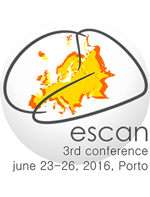

Browse below for the full ESCAN 2016 program, details on our keynote lecturers and their talks, and the ESCAN awards. Also, check out the pre-conference workshops (that will take place on the 23rd of June). Download the full program for all details.
Thu. 23 |
Fri. 24 |
Sat. 25 |
Sun. 26 |
8:30-9:15 Registration |
|
||
9:00-16:00 Pre-conference workshop(s) @FPCEUP |
|||
9:15-9:30 Opening |
9:00-10:00 Keynote lecture: Prof. José Morais (ULB, Belgium) |
||
9:30-10:30 Keynote lecture: Prof. Roberto Zatorre (MNI, Canada) |
|||
10:30-11:00 Coffee break |
10:30-11:00 Coffee break |
10:00-10:30 Coffee break |
|
11:00-12:30 Symposia session 1 |
11:00-12:30 Symposia session 4 |
10:30-11:45 Symposia session 7 |
|
12:30-13:30 Lunch |
12:30-13:30 Lunch |
11:45-13:00 Symposia session 8 |
|
13:00-13:15 Closing |
|||
13:30-14:30 Posters 1 |
13:30-14:30 Posters 2 |
||
14:30-16:00 Symposia session 2 |
14:30-16:00 Symposia session 5 |
||
16:00-17:30 Registration and meeting @FPCEUP |
16:00-16:30 Coffee break |
16:00-16:30 Coffee break |
|
16:30-18:00 Symposia session 3 |
16:30-18:00 Symposia session 6 |
||
|
|||
18:00-20:00 Welcome reception |
18:00-19:00 ESCAN general assembly |
||
|
|||
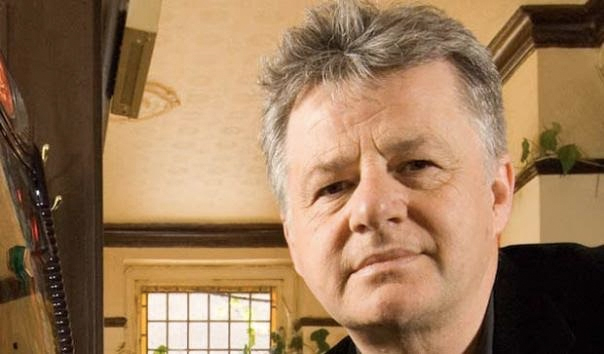
Abstract: A governing factor in human social interactions is how we value others. This question has been addressed from a number of perspectives, and here I will present recent data that shows human subjects have an hyperaltruistic disposition towards others. Furthermore, I will show that an altruistic disposition towards others can be predicted by emotional responses to inequity. I will then consider how we learn to make value-based choices for others, and how well these choices reflect the inferred values of others. It turns out that making value based decisions on behalf of another person has a subtle, but quantifiable, impact on our own values. This behavioural effect can be indexed in a plastic effect within the brain’s valuation system. I will consider examples that illustrate how these approaches might provide a framework for the development of computational-based assays of social emotions, such as guilt and envy, and common psychopathological dispositions. These in turn can be exploited to probe underlying neurobiological mechanisms and possible help foster a new approach to psychopathology.
Biographical sketch: Ray Dolan is Mary Kinross Professor of Neuropsychiatry and Director of the Wellcome Trust Centre for Neuroimaging, at UCL. His research addresses the neurobiology of emotion and decision making, how emotion impacts on cognition and its aberrant expression in disease. He has published over 500 peer reviewed papers is among the most cited scientist in the world in the field of Neuroscience and Behaviour. He has received numerous awards including the Alexander Von Humboldt Research Award (2004), the Minerva Foundation Golden Brain Award (2006), the International Max Planck Research Award (2007) and the Zülch Prize (2013). Between 2010-2014 he has been Visiting Einstein Fellow to the Humboldt University, Berlin. He was elected Fellow of the Academy of Medical Sciences (FMedSci) in 2000, Fellow of the Royal Society (FRS) in 2010 and an External Member of the Max Planck Society (MPS) in 2012. He recently established the first Centre for Computational Psychiatry at UCL, a joint venture with the Max Planck Society (MPS).
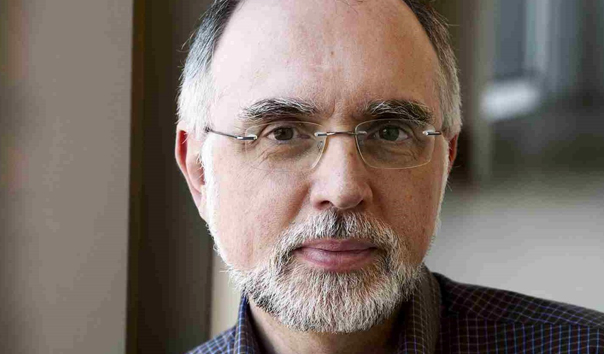
Abstract: Music has existed in human societies since prehistory, perhaps in part because it allows expression and regulation of emotion, and evokes pleasure. In this lecture I will present findings from cognitive neuroscience that bear on the question of how we get from perception of sound patterns to pleasurable responses. Specifically I will discuss evidence from our lab concerning the striatal dopaminergic reward system, and its involvement in musical pleasure. I propose that pleasure in music arises from interactions between cortical loops that enable predictions and expectancies to emerge from sound patterns, and subcortical systems responsible for reward and valuation. This model integrates knowledge derived from basic neuroscience of reward mechanisms with independently derived concepts, such as tension and anticipation, from music theory. It may also serve as a way of thinking more broadly about aesthetic rewards.
Biographical sketch: Robert Zatorre is a cognitive neuroscientist at the Montreal Neurological Institute of McGill University. He obtained his PhD in experimental psychology at Brown University in 1981 under the late Peter Eimas and subsequently carried out postdoctoral research at the MNI with Brenda Milner. His principal interests relate to the neural substrate for auditory cognition, with special emphasis on two complex and characteristically human abilities: speech and music. He and his collaborators have published over 250 scientific papers on a variety of topics including pitch perception, musical imagery, absolute pitch, music and emotion, perception of auditory space, and brain plasticity in the blind and the deaf. In 2005 he was named holder of a James McGill chair in Neuroscience. In 2006 he became the founding co-director (together with Isabelle Peretz) of the international laboratory for Brain, Music, and Sound research (BRAMS), a unique multi-university consortium with state-of-the art facilities dedicated to auditory cognitive neuroscience, funded via a $13.8M award from the Canada Fund for Innovation. In 2011 he was awarded the IPSEN foundation prize in neuronal plasticity, and in 2013 he won the Knowles prize in hearing research from Northwestern University. He lives in Montreal with his wife and collaborator Virginia Penhune, professor of psychology at Concordia University. He tries to keep up his baroque repertoire on the organ whenever he can get a chance.
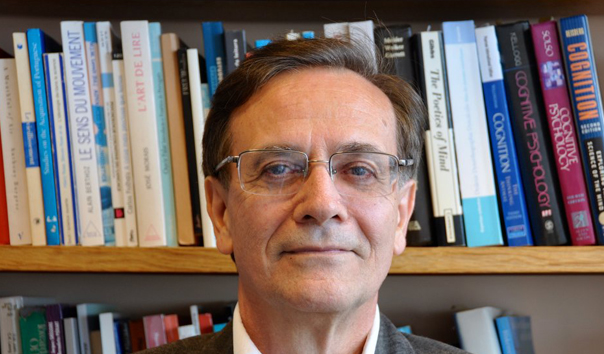
Abstract: Literacy has deeply changed the human beings: how they live, communicate, process information, experience the world and themselves, as well as technology and sociopolitical organization. However, literacy varies across many levels and, even today, it is distributed in a highly skewed way at all these levels. The situation of literacy in the world, its evolution, and the reasons of it will be presented. In relation with this, I will first show that universalizing and increasing literacy are aims that can be reached. This question will be considered for alphabetic literacy and as regards both cognition and brain plasticity. Then, I will examine whether and how language in its written form influences spoken language processing. Next, I will look at evidence on how the affective and emotional dimension of language is processed in the brain when conveyed in written vs. spoken form. Finally, I will consider literacy as a cultural tool that improves the many components – social, affective, imaginative, conceptual and aesthetical – of our biologically rooted capacity of making narratives.
Biographical sketch: José Morais is Emeritus Professor of the Université Libre de Bruxelles (ULB), of which he has been head of the Laboratory of Experimental Psychology and dean of the Faculty of Psychological Sciences and Education. Presently he is Invited Professor at the ULB’s Centre for Research in Cognition and Neuroscience. Doctor honoris causa of the University of Lisbon, he had been president of the Psychological Sciences committee of the Royal Academy of Belgium. His PhD thesis, in 1978, concerned the relations between speech processing and hemispheric specialization. Since 1979 he has been working on literacy and literacy acquisition. Since the 1980s and in parallel, he has been studying the interactions between literacy on the one hand and speech processing on the other hand. Until now, he has published more than 250 texts in scientific journals (including Cognition, Journal of Experimental Psychology, Neuropsychologia, Science, P.N.A.S., Nature Neuroscience Review, etc.) and several books, as first author or co-author.
A novelty of the 3rd conference of the ESCAN in Porto will be the attribution of the ESCAN Young Scientist Award 2016. This award, provided by the ESCAN Board, honours the early achievements of scientists working in the area of Cognitive and Affective Neuroscience and is meant to encourage the further ascendance of a research star.
We will also feature a Best Student Abstract award that will honour the best abstract submitted by a student or post-doc researcher (fee waiver).
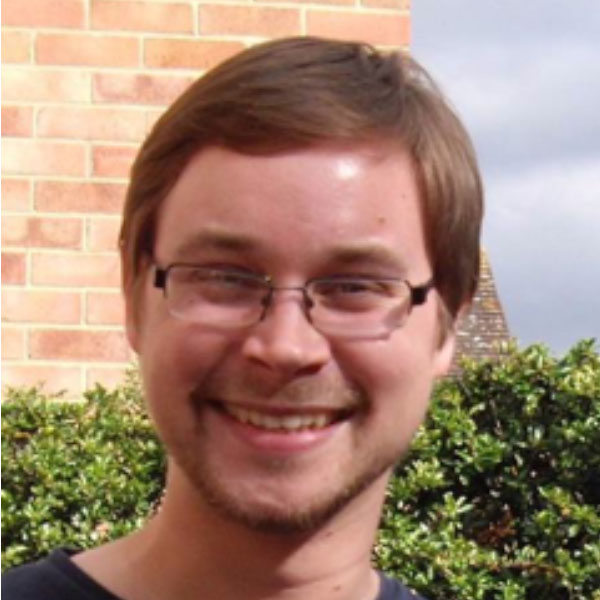
Abstract: Over the last decade the functional properties of the anterior cingulate cortex (ACC) have become one of the most controversial and fiercely debated of any region of the human brain. On the one hand the ACC is implicated in a broad range of cognitive processes including motivation, cognitive control and pain, that guide our own behaviour. In stark contrast however, considerable evidence suggests this region also makes specific contributions to vital socio-cognitive processes such as empathy and the processing of social stimuli. How can these divergent viewpoints be reconciled? Here I present a novel account of the ACC’s contribution to social cognition. I provide evidence that only a particular sub-region of the ACC - in the gyrus (ACCg) - processes information specifically about other people and not about ourselves. I highlight that the computational properties of this region allow it to play a crucial role in estimating how motivated other people are and in updating those estimates when further evidence suggests they have been erroneous. Finally, I will present evidence that this new framework can provide insights into the mechanisms underlying social deficits in autism spectrum disorders.
Biographical sketch: Matthew Apps is a cognitive neuroscientist in the Dept. of Experimental Psychology, University of Oxford. His research examines the neural and computational mechanisms underlying motivation, decision-making and social cognition. He obtained an ESRC funded PhD examining the neurocomputational mechanisms underlying social cognition and motivation in 2012 from Royal Holloway, University of London (RHUL) under the supervision of Prof. Narender Ramnani. He remained at RHUL for his first postdoctoral position examining the computational mechanisms that guide our ability to distinguish ourselves from other people in the laboratory of Prof. Manos Tsakiris. In 2013 he moved to Oxford as a postdoctoral researcher on a project examining the neurobiology underlying motivation with Prof. Masud Husain. During this time he was awarded a 2-year fellowship at Somerville College, Oxford. In 2015 he became a principal investigator on a BBSRC Anniversary Future Leader Fellowship grant, with the aim of providing a biological framework for understanding variability in motivation in healthy people and in neurological disorders. More on Dr. Mathew Apps’ website: http://www.mattapps.co.uk
At a walking distance from the conference venue stands the iconic Casa da Música (literal translation, Home of Music), designed by architect Rem Koolhaas for Porto 2001: European Capital of Culture. Our conference dinner will take place at the top floor of the building, in the award-winning Restaurante Casa da Música.
Symposia instructions:
- We kindly ask all symposia chairs to strictly enforce the announced schedule, as the timely organisation of the conference depends on it.
- Speakers are asked to bring their presentation slides in a USB drive and to transfer the file to the presentation computer up to 5 minutes before the symposium starts.
- Talks are scheduled for 15 minutes, allowing 3-5 minutes for questions/discussion per talk.
- While it is possible to ask questions immediately after the talks, we recommend that questions from the audience are left to the end of all the talks, as to avoid engaging in discussions that (although scientifically stimulation) might unduly limit the time-slot of the next speaker.
- A person from the Conference Secretariat will be present in the symposia rooms at all times (please search for their badge), and will be able to provide assistance with any technical matters, if needed.
Poster Instructions:
- We ask poster presenters to affix your posters in the morning of the day of your session and to collect them at the end of the day – that way posters will be available throughout the day during coffee breaks, etc. (poster fixation materials will be provided). During the poster sessions authors are encouraged to stand by their posters and interact with viewers.
- The posters panels will be in portrait position and are sized 200 cm tall x 90 cm wide. As such, the maximum poster size is A0 paper size (118.9 x 84.1 cm), with portrait orientation.
- You may also want to consider uploading your poster to the Meeting’s Open Science Framework (OSF) site (https://osf.io/view/escan2016/) to make it publicly available online.
Pre-conference workshops focused on specific research skills will take place on the 23rd of June, at the facilities of the Faculdade de Psicologia e de Ciências da Educação da Universidade do Porto.
Title: Functional Magnetic Resonance Imaging – from idea to the final results
Faculty: José Miguel Soares, PhD (University of Minho, Portugal) and Paulo Marques, PhD (Brainlab, Germany)
Schedule: 23rd of June 2016, 9:30-12:30; 14:00-16:00
PROGRAM DOWNLOAD
Fee: 55€
Minimum number of participants: 15
Registration: Please e-mail labnpf@fpce.up.pt for instructions.
Title: Building Experimental Paradigms in E-Prime
Faculty: Carina Fernandes and Ana R. Gonçalves, PhD (University of Porto, Portugal)
Schedule: 23rd of June 2016, 13:30-16:00
PROGRAM DOWNLOAD
Fee: 30€
Minimum number of participants: 15
Registration: Please e-mail labnpf@fpce.up.pt for instructions.